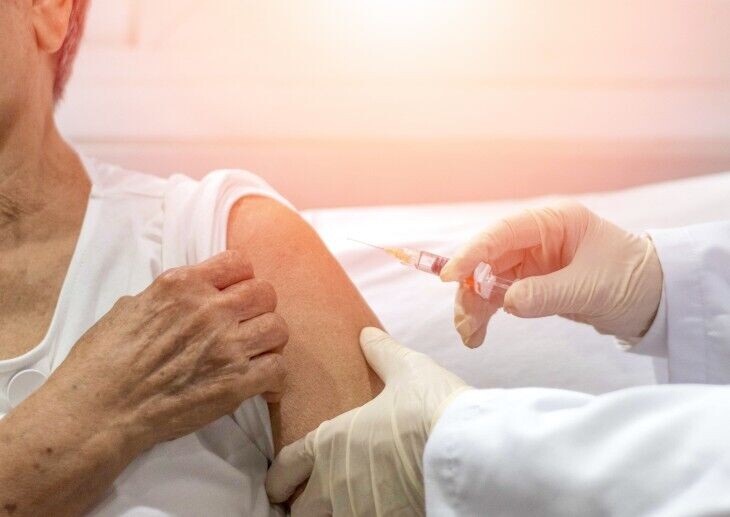Artificial intelligence (AI) is having an impact across cancer and cardiovascular diagnosis, with multiple tools being rolled out across the NHS.
Today (6 May), NHS England revealed that an AI-driven 3D heart scan has cut the need for invasive tests and saved millions of pounds after being rolled out across 56 hospitals in England since 2021.
The technology has enabled faster diagnosis of suspected heart disease by turning a CT scan of a patient’s heart into a personalised 3D image which is then analysed using AI.
A study of the technology’s use, published in Nature Medicine, found that the test reduced the number of patients needing invasive angiogram tests by a sixth (16%) in cases where it was later found no further treatment was required, and by 7% overall.
The number of second heart tests patients needed within two years was also cut by 12%.
A total of 24,300 patients have so far accessed the technology since it was rolled out, saying an estimated £9.5m for the NHS.
Skin cancer diagnosis
A separate tool that can help detect potential skin cancer was last week approved by NICE for use on the NHS for three years while further evidence on its effectiveness is collected.
The technology can be used as part of the triage process and aims to ‘significantly reduce’ waiting times.
Deep Ensemble for Recognition of Malignancy (DERM), developed by Skin Analytics, analyses images taken on a smartphone with a dermoscopic lens attachment to assess skin lesions. It can then enable the redirecting of benign cases to non-urgent pathways.
After a patient has been referred to the service, the lesion can be remotely assessed, diagnosed and monitored without requiring an in-person appointment. The algorithm will compare the images to those in its bank of known skin conditions to identify which need to be seen by a dermatologist.
Dr Anastasia Chalkidou, HealthTech programme director at NICE, said: ‘DERM has shown promising results in its ability to accurately distinguish between cancerous and non-cancerous skin lesions, with evidence suggesting it could halve the number of referrals to dermatologists within the urgent skin cancer pathway while maintaining patient safety.
‘DERM is an example of how we can harness artificial intelligence to benefit both patients and healthcare professionals. Our evaluation shows this technology maintains diagnostic accuracy while reducing the burden on specialist dermatology services. By implementing this system within existing pathways, we can ensure patients get the right care more quickly.’
Early lung cancer diagnosis
It comes as a study has suggested that AI could help doctors diagnose lung cancer earlier, by identifying patients at risk from their clinical history.
It suggested that 75% of patients are diagnosed with lung cancer at an advanced stage, but that long-term data in GP records could contain ‘hidden’ information that could help diagnose earlier.
For the study, published in the BJGP, Dutch researchers developed an algorithm to identify these clues in the free text of patient records. They analysed 525,526 patient records, of whom 2,386 were diagnosed with lung cancer.
The study found the tool adequately referred 62% (1,480 of 2,386) of all patients with lung cancer around four months earlier than had been done by the GP.
However, for every patient diagnosed four months earlier, 33 patients underwent tests because of a presumed increased risk and about 40% of all patients with lung cancer would have been missed by the tool and referred four months later following usual care.
Researchers said the analysis would need to be tested further in different countries and healthcare systems, but that it could prove useful for other types of cancers as well.
Cancer records
The NHS has also announced it will extend its Cancer 360 pilot to an additional 10 trusts from June.
Cancer 360 is a tool that is built into the federated data platform and enables clinicians to have a single view of their waiting list. Teams can also use it to track a patient’s progress in the system, produce personalised treatment plans and reduce paperwork.
A recent healthcare leader bulletin from NHS England said the tool had supported Chelsea and Westminster NHS Foundation Trust to exceed the 28-day faster diagnosis standard despite increased referrals.
Suraiya Abdi, consultant obstetrician and gynaecologist at Chelsea and Westminster NHS Foundation Trust, said: ‘The implementation of Cancer 360 has enabled my team to monitor and safely carry our patients through their cancer pathway.
‘The tool enables us to have in depth conversations at our weekly meetings regarding a patient’s next step, as well as allowing us to escalate queries directly to other teams for faster turnaround.
‘The tool has reduced the amount of admin time spent by our cancer team therefore enabling them to focus on the patient journey. I have witnessed an improvement in performance, team spirit and most importantly patient experience.’
It comes as eleven robotic surgery systems have been approved for use in the NHS by NICE, which could improve patient care and access to procedures.
A new ‘super-jab’ for 15 types of cancer expected to save 1,000 hours of treatment time every month will also be rolled out from May, NHS England announced last week.




